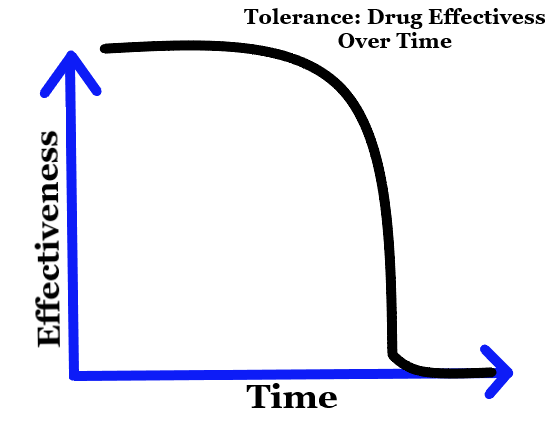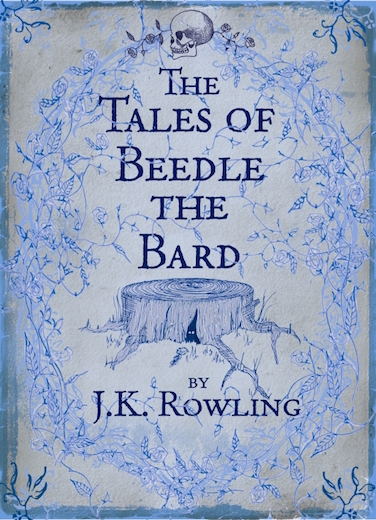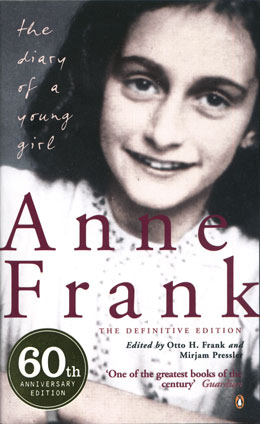If you take medication for anything, including mental illness, over a long period of time your brain and body develops a tolerance. This means that the medication becomes less effective.
How long a tolerance takes to develop depends on the individual. You may get a tolerance quickly (weeks or months of use) or slowly (years or decades of use). The process of developing a tolerance is so gradual that you might not notice straight away. In fact it might take you quite sometime to understand that the symptoms of illness are returning and that you need to have your medication reviewed. Here is a line graph that shows drug effectiveness over time:
When your brain and body develop a tolerance you have two options:
- Increase the dose of your medication.
- Change your medication.
Any increases in dose or changes to your medication should be done under medical supervision. Some medications have withdrawal effects, which you may experience if you suddenly stop or decrease the dose too rapidly. The withdrawal symptoms range from relatively mild to extremely severe.
I am on a mood stabiliser medication. Developing a tolerance to this medication is beyond terrible. It’s awful, frustrating and occasionally overwhelming. At times it feels like I am being tortured.
I visited my GP some months ago and explained how I was feeling in mood. My GP referred me to the Community Mental Health Team. I waited 4 weeks for a twenty minute telephone assessment.
I was passed onto a Pharmacist Prescriber, another 4 week wait. She appeared to be concerned about hypomanic symptoms that I’m experiencing including:
- High levels of anxiety.
- Increased energy.
- Difficulties in falling or staying asleep.
- Increased productivity.
- Obsessional thinking.
- Being very irritable and frustrated.
- Switching between tasks without finishing any of them.
- Increase in desire to have sex.
- Feeling on edge and being unable to relax.
- Writing a lot.
- Fidgeting.
- A couple of severe mixed mood states per week.
Although many of these symptoms may seem positive at first glance, when your mind takes them to extremes they become destructive and are damaging to your physical and mental health.
The Pharmacist Prescriber doubled the doses of my medication. This proved ineffective. She discussed my case with she with a Consultant Psychiatrist whom wants to see me. Another 5 week wait.
All this time waiting and struggling. All this time of lacking a quality of life. I can’t even sleep off the severe mixed mood states.
I totally understand how underfunded the NHS is and in particular how under resourced mental health services are. So far I’ve waited 13 weeks (3 months and 1 week).
The wait feels eternal and I am beginning to feel that nothing will ever change. I know rationally that neither these last two emotionally driven thoughts are correct. Yet it can be difficult to disregard how you feel.
On the plus side my first book Mental Health Wisdom – Developing Understanding & Empathy is coming along well and at a quick pace due to the hypomania. It is due for release in October of this year.
Write soon,
Antony






A great introductory article on candle magic :)
Hi Sofia, Thanks for the comment. I bought that in Glastonbury and he was a real find. I bought him…
Hi! I know this was posted ages ago and so a response may be rare but my dad has been…
Hi Ruth, Thanks for the comment. He might well have been. A x
Hi! Watching video and interviews with Charlie Watt, it had me wondering if he might have had Aspergers/ been on…